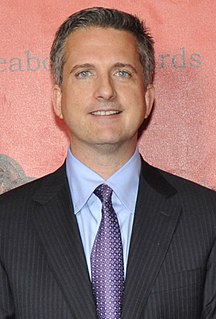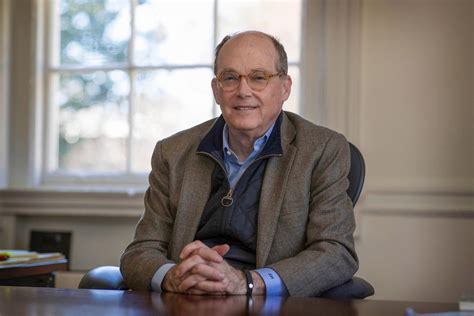A Quote by Bill Simmons
Leaders thrive when they feel creatively empowered, when they trust the people around them, when their confidence is swelling. Leaders make mistakes when they lose that same confidence, when they're fretting about their power base, when they're reacting instead of acting.
Related Quotes
Confidence is not lodged in people's brains, it comes from the support system that surrounds them. Let's not confuse confidence overall with just self-confidence. Self-confidence is only one part of confidence. People also need confidence in others - their colleagues and leaders - that they can count on them to do the right thing and not to let them down.
"Leadership" is a big topic today. We know that the world - nations and communities in addition to companies - needs more and better leaders. So I wanted to explore how leaders make a difference, how they can shift a negative cycle, turn around a losing organization, propel a team to victory when conditions aren't perfect. I saw that what leaders do is build confidence in advance of victory. Then the confidence they produce makes the hope of success turn into the reality of success, because people behave differently when they are surrounded by a culture of confidence.
Micromanaging erodes people's confidence, making them overly dependennt on their leaders. Well-meaning leaders inadvertently sabotage their teams by rushing to the rescue and offering too much help. A leader needs to balance assistance with wu wei, backing off long enough to let people learn from their mistakes and develop competence.
The mistakes (of leaders) are amplified by the numbers who follow them without question. Charismatic leaders tend to build up followings, power structures and these power structures tend to be taken over by people who are corruptible. I don't think that the old saw about 'power corrupts and absolute power corrupts absolutely' is accurate: I think power attracts the corruptible.
Own the room. Confidence has nothing to do with what you look like. If you obsess over that, you'll end up being disappointed in yourself all the time. Instead, high self-esteem comes from how you feel in any moment. So walk into a room acting like you're in charge, and spend your energy on making the people around you happy. Giving confidence to others will come back to you and you'll end up feeling better about yourself.
Leaders are active instead of reactive, shaping ideas instead of responding to them. Leaders adopt a personal and active attitude toward goals. The influence a leader exerts in altering moods, evoking images and expectations, and in establishing specific desires and objectives determines the direction an organization takes. The net result of this influence is to change the way people think about what is desirable, possible, and necessary. In other words, leaders are visionaries and managers operate within those established visions.
































